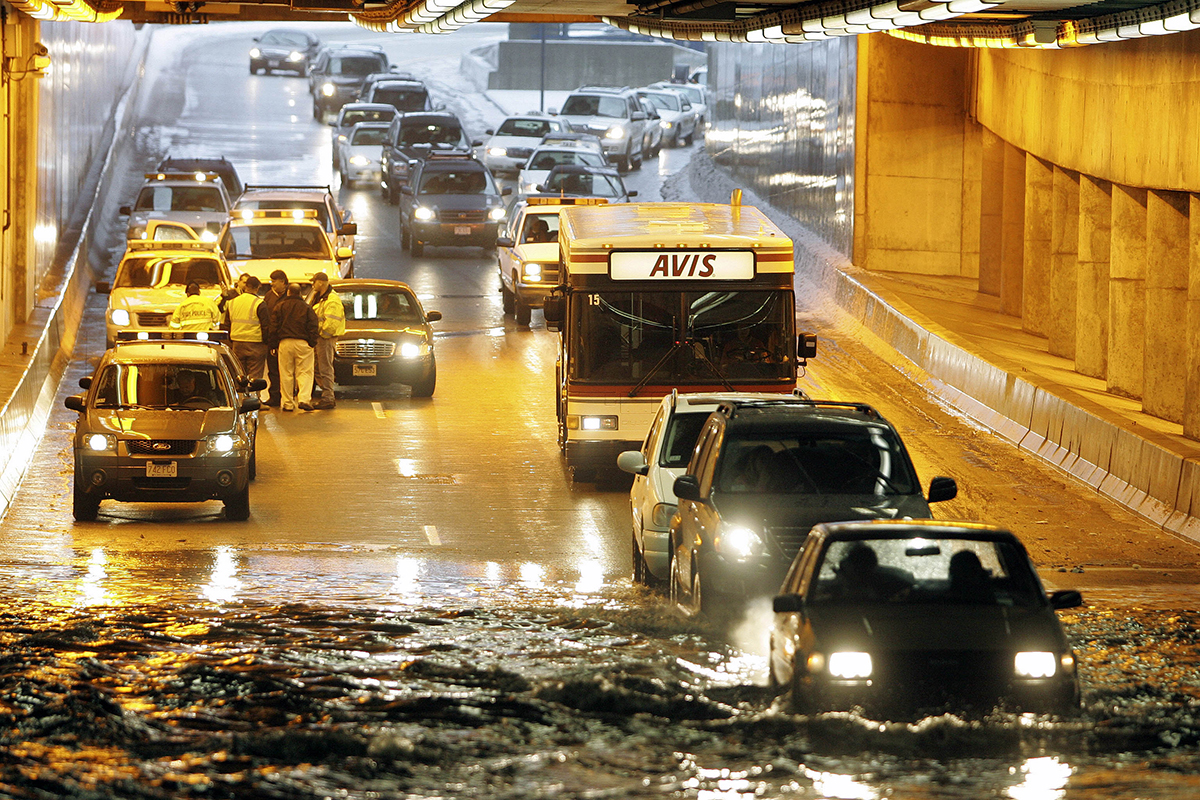Why Owning a Car in Boston Sucks

Photo via AP
“For many Americans the most worrisome, day-to-day problem is not the Russian menace or Washington politics, but where to park,” TIME magazine boldly declared. “With U.S. auto registrations topping 50 million—and increasing at a fast rate—more and more cities are banning street parking to speed up traffic. Thus there is an increasing number of motorists to compete for fewer places. Every day; for example, 260,000 vehicles enter downtown Boston to compete for 82,000 spaces.”
That was written in 1955.
Nearly 650,000 people call Boston home, as of 2013. That’s more than 13,000 per square mile. And how do they get to work?
Forty-six percent of Boston’s workforce drives to their place of business, either alone or in a carpool. There’s approximately one vehicle per household, despite a high rate of carless households (35.8 percent). And how many parking spots await them? The Globe took a stab at figuring it out in March, and came back with a big, fat, “Who knows?” That doesn’t bode well for the city’s looming parking crisis.
Massachusetts residents already spend slightly above the national average on auto insurance. Suffolk County residents, meanwhile, pay over $300 more than the average Massachusetts driver—$1,418.78, according to NerdWallet. Compare that to an average premium of $827.50 for Nantucket drivers.
But the horror doesn’t end once you hit the road. Texas A&M Transportation Institute ranked Boston the fifth most congested, traffic jam-riddled metropolitan area in 2013, behind Washington D.C., Los Angeles, San Francisco-Oakland, and New York-Newark. In 2014, insurance provider Allstate ranked Boston the second worst city for collisions in the country, based on population, city density, and road conditions. Only Worcester was worse.
If you’ll allow me a quick departure from all these highfalutin facts and figures in favor of an appeal to pathos: Owning a car in Boston really sucks.
I have stared into the abyss, and it looks an awful lot like Strathmore Road in Brighton on the eve of street cleaning, as I beg the universe to compel some unlucky schmuck to leave his home so I can shimmy my Corolla into a line of cars that stretches on and on into infinity—or, Beacon Street.
But there’s hope! Twenty years ago, going carless in Boston meant choosing between the MBTA, a cab that smelled vaguely of pot roast, and risking your life on your bike. Since then, Uber, Lyft, Bridj, Hubway, and Zipcar have all sprung into existence and made it easier to ditch your car. After hitting rock bottom last winter, the T can only get better from here (we hope?). The Silver Line is expanding into Chelsea, and soon, DMUs will be buzzing up and down intercity commuter rail lines.
There are opportunity costs, sure. But if there has ever been a time to shrug off the chains of car ownership in Boston, it’s now.


